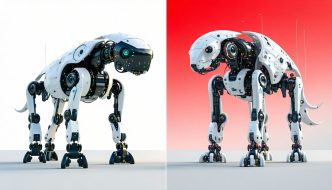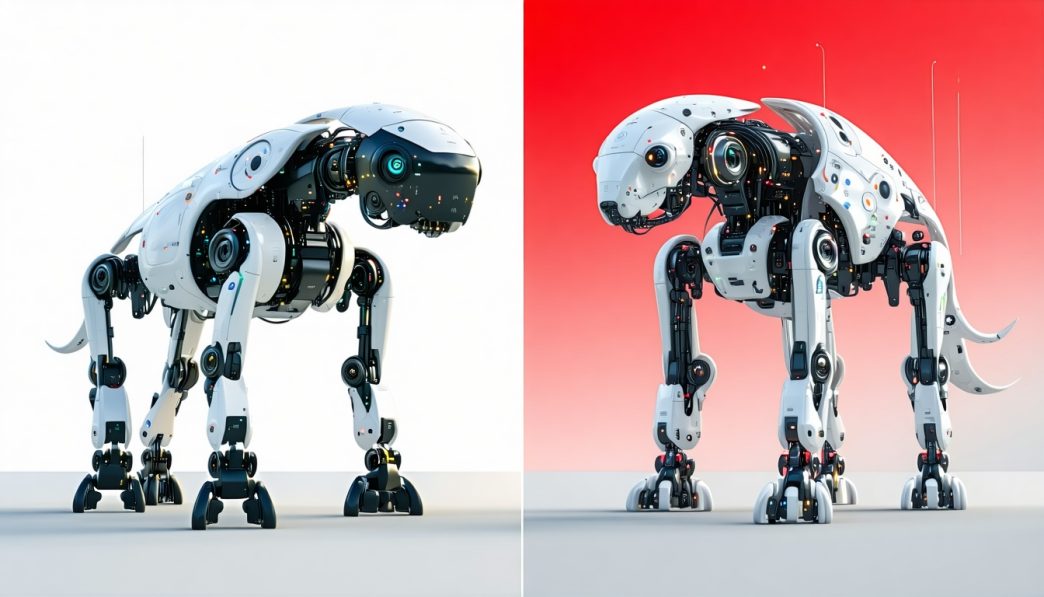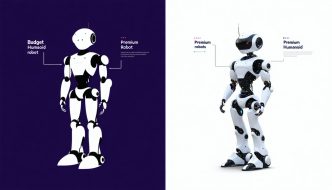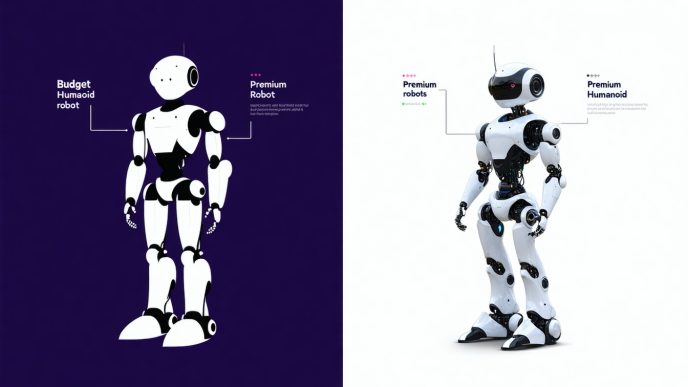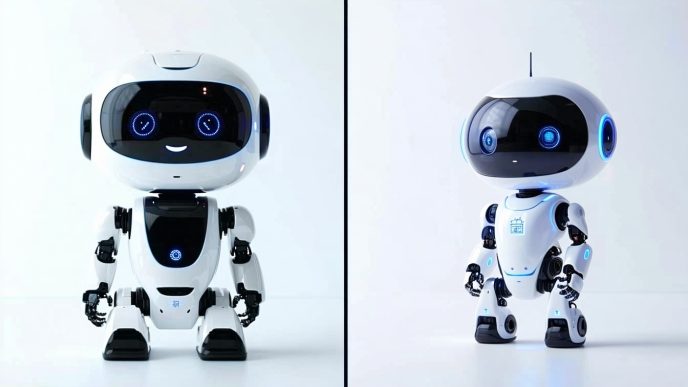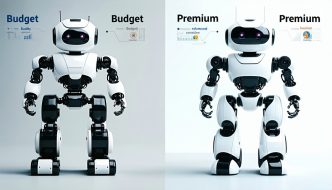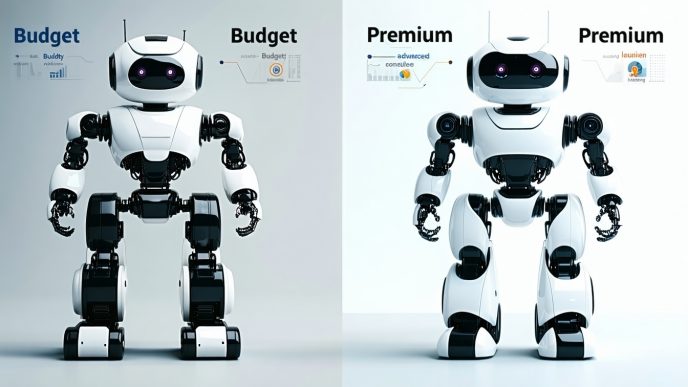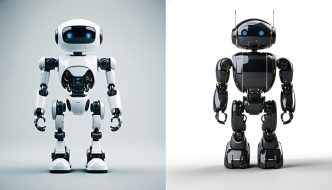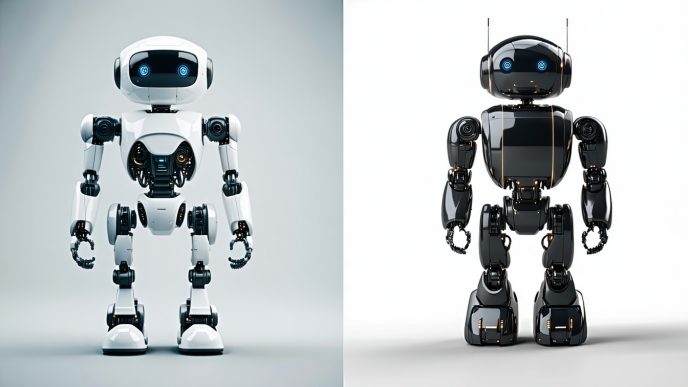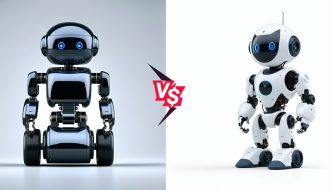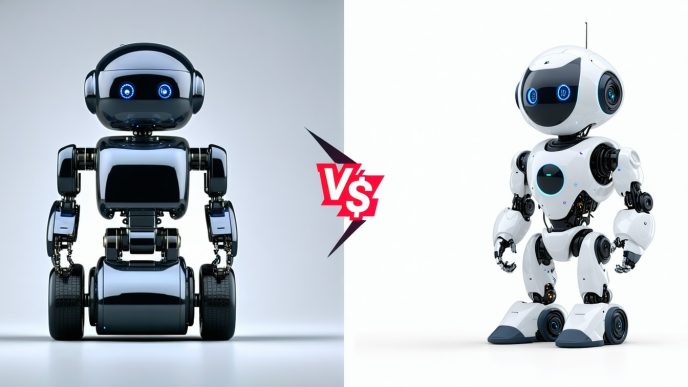Exploring Robot Options
In the world of robotics, buyers often face the decision of choosing between budget and premium quadruped robots. Each category presents unique advantages and disadvantages, making it essential for consumers to evaluate their needs and preferences carefully.
Overview of Budget Quadruped Robots
Budget quadruped robots generally offer a cost-effective solution for those entering the robotics market or for those with limited funds. These robots are typically designed for basic functions such as simple navigation and interaction. They can be a great starting point for educational purposes, hobbyists, or initial testing environments.
Key features of budget quadruped robots may include:
- Basic mobility
- Limited sensory capabilities
- Simpler control mechanisms
- Lower processing power
Despite their lower cost, these robots can still perform adequately for specific tasks and environments. However, potential buyers should consider factors such as robot maintenance costs budget vs premium as these may vary based on build quality and components.
| Aspect | Budget Quadruped Robots |
|---|---|
| Price Range | $500 – $1,500 |
| Speed | Up to 3 mph |
| Payload Capacity | 5 – 10 lbs |
| Battery Life | 1 – 2 hours |
Overview of Premium Quadruped Robots
Premium quadruped robots are engineered with advanced features and capabilities, catering to users who seek high performance, reliability, and intricate functionalities. These robots often have enhanced agility and sophisticated navigation systems, making them versatile for various applications like research, industrial use, or rescue operations.
Features of premium quadruped robots typically include:
- Advanced mobility and agility
- Enhanced sensory systems
- High processing power
- Robust build quality
While these robots come with a higher price tag, buyers should consider the long-term value they offer, including improved performance and durability. Interested parties can review insights on return on investment for budget vs premium robots to weigh options effectively.
| Aspect | Premium Quadruped Robots |
|---|---|
| Price Range | $1,500 – $5,000 |
| Speed | Up to 10 mph |
| Payload Capacity | 20 – 50 lbs |
| Battery Life | 4 – 8 hours |
Comparing the two categories reveals significant differences in performance, durability, and potential usage. For detailed analyses on specific features such as build quality or navigation systems, consider exploring robot build quality budget vs premium and navigation systems budget vs premium robots. Understanding these distinctions can help buyers make an informed decision that aligns with their needs and budget.
Durability Comparison
Evaluating the durability of quadruped robots involves an examination of their build quality, which is crucial for long-term performance and reliability. This comparison focuses on budget quadruped robots versus premium quadruped robots, helping potential buyers understand what to expect in terms of construction and longevity.
Build Quality of Budget Quadruped Robots
Budget quadruped robots often use cost-effective materials and manufacturing processes to keep prices low. While they can perform basic functions, the build quality may be less robust compared to premium models.
| Feature | Budget Quadruped Robots |
|---|---|
| Frame Material | Plastic or lightweight metal |
| Weight Limit | Up to 5 kg |
| Water Resistance | Limited (IP rating 33) |
| Suspension System | Basic shock absorption |
| Warranty Duration | 1 year |
Due to the use of lighter materials, budget robots may be more susceptible to wear and tear, especially in demanding environments. Buyers should consider the potential for increased maintenance costs as durability issues arise over time, as discussed in our article on robot maintenance costs budget vs premium.
Build Quality of Premium Quadruped Robots
Premium quadruped robots, on the other hand, are constructed with high-quality materials and advanced engineering techniques. This results in greater durability and overall performance.
| Feature | Premium Quadruped Robots |
|---|---|
| Frame Material | High-grade aluminum or carbon fiber |
| Weight Limit | Up to 25 kg |
| Water Resistance | High (IP rating 67) |
| Suspension System | Advanced multi-link system |
| Warranty Duration | 2-3 years |
The superior build quality of premium models enables them to endure more severe conditions, making them a better choice for those requiring a reliable and long-lasting robot. Performance in rugged environments is further enhanced by their sophisticated navigation systems, outlined in our article on navigation systems budget vs premium robots.
In summary, while budget quadruped robots offer an affordable entry point into robotic technology, premium quadruped robots deliver enhanced durability and long-term value, justifying their higher price tag. For those focused on both cost and durability, understanding these distinctions is essential in making an informed decision.
Agility and Performance Analysis
In the world of quadruped robots, agility and performance are vital factors for users looking to maximize their investment. This section evaluates the speed and maneuverability of both budget quadruped robots and premium quadruped robots.
Speed and Maneuverability of Budget Quadruped Robots
Budget quadruped robots tend to prioritize cost savings over advanced capabilities. While they can perform basic tasks effectively, their speed and agility may be limited compared to more expensive options. Typically, these robots may have basic navigation systems that allow for straightforward movements and obstacle avoidance.
The following table illustrates the average speed and maneuverability metrics for budget quadruped robots:
| Feature | Measurement |
|---|---|
| Average Speed | 1.5 – 3 mph |
| Turning Radius | 3 – 5 feet |
| Weight Support Capacity | Up to 20 lbs |
| Climbing Ability | Moderate (up to 15° incline) |
Many users may find that these budget options are suitable for tasks around the house or simple outdoor activities. However, for demanding applications, one should refer to comparisons such as robot navigation systems budget vs premium.
Speed and Maneuverability of Premium Quadruped Robots
Premium quadruped robots offer superior speed and more advanced maneuverability features. These robots are often equipped with cutting-edge navigation systems that enable them to traverse complex terrains with precision. Users can expect improved turning capabilities, as well as faster speeds for various applications.
The following table summarizes the benchmark speed and maneuverability details for premium quadruped robots:
| Feature | Measurement |
|---|---|
| Average Speed | 4 – 10 mph |
| Turning Radius | 2 – 4 feet |
| Weight Support Capacity | Up to 200 lbs |
| Climbing Ability | High (up to 30° incline) |
The enhanced performance in premium models allows for more versatile use cases, from research to industrial applications. Users who prioritize agility should consider the differences highlighted in these metrics, especially in light of discussions around return on investment for budget vs premium robots.
When weighing the options, value-conscious buyers should assess their specific needs against the capabilities offered by these different robot segments.
Features Evaluation
Evaluating the features of quadruped robots helps potential buyers understand what they can expect from budget and premium options. This section breaks down the standard features found in budget quadruped robots and the advanced features available in premium quadruped robots.
Standard Features of Budget Quadruped Robots
Budget quadruped robots often come equipped with essential features that cater to the primary needs of users without overwhelming them with complexity. The following table outlines some typical standard features found in these more affordable models:
| Feature | Description |
|---|---|
| Basic Mobility | Simple movement capabilities, allowing for walking and limited obstacle navigation. |
| Remote Control | Basic user interface for controlling the robot manually. |
| Basic Sensors | Basic collision detection sensors to avoid obstacles. |
| Entry-Level AI | Simple programming or pre-set routines to perform tasks. |
| Durability | Adequate build quality for typical indoor use, ensuring longevity. |
Budget quadruped robots serve well for users who need fundamental functionalities without the extra bells and whistles. For those interested in comparing other robot types, visit our comparison of budget humanoid robots vs premium humanoid robots.
Advanced Features of Premium Quadruped Robots
Premium quadruped robots provide a suite of advanced features designed for enhanced performance, usability, and versatility. Below is a table listing features commonly found in these high-end models:
| Feature | Description |
|---|---|
| Enhanced Mobility | Advanced locomotion, including deft movements, jumps, and recovery from falls. |
| Advanced AI | Sophisticated programming capabilities enabling learning and adaptation to surroundings. |
| High-Quality Sensors | A variety of sensors for environment mapping, object recognition, and real-time navigation. |
| Autonomous Navigation | Ability to independently navigate complex environments without user intervention. |
| Robust Build Quality | Designed for durability in various environments, including outdoor terrains. |
For users seeking comprehensive functionality and superior performance, investing in premium quadruped robots can prove beneficial in the long run. To learn more about return on investment, explore our article on return on investment for budget vs premium robots.
Understanding these differences in features allows value-conscious buyers to weigh the cost against performance and long-term needs effectively in the debate of budget quadruped robots vs premium quadruped robots.
Long-Term Value Assessment
When considering a quadruped robot, understanding the cost versus longevity can help buyers make informed decisions. This section will evaluate how budget and premium quadruped robots compare in terms of long-term value.
Cost vs Longevity of Budget Quadruped Robots
Budget quadruped robots generally come with a lower initial price, making them attractive to value-conscious buyers. However, it is important to examine their longevity and the potential costs associated with maintenance.
| Aspect | Budget Quadruped Robots |
|---|---|
| Initial Cost | $500 – $1,500 |
| Expected Lifespan | 2 – 4 years |
| Average Maintenance Costs per Year | $100 – $300 |
| Repair Frequency | Moderate |
While the upfront cost may be appealing, the lifespan of budget quadruped robots is shorter. Frequent repairs could lead to cumulative costs that rival higher-end models. Buyers should consider these factors when evaluating their investment.
Cost vs Longevity of Premium Quadruped Robots
Premium quadruped robots are typically more expensive but often provide better longevity and lower maintenance costs over time. Here’s a breakdown of what to expect with these higher-end models.
| Aspect | Premium Quadruped Robots |
|---|---|
| Initial Cost | $2,000 – $10,000 |
| Expected Lifespan | 5 – 10 years |
| Average Maintenance Costs per Year | $50 – $150 |
| Repair Frequency | Low |
Although premium models come with a higher price tag, they generally offer enhanced durability and reliability. Lower maintenance and repair costs also contribute to a better return on investment. Buyers can consider this long-term assessment when deciding between budget quadruped robots vs premium quadruped robots.
Both categories have their own merits, and individuals should reflect on their priorities, whether it is cost efficiency or performance and reliability. Understanding the full picture allows for better planning for both immediate and future investment in robotic technology.

